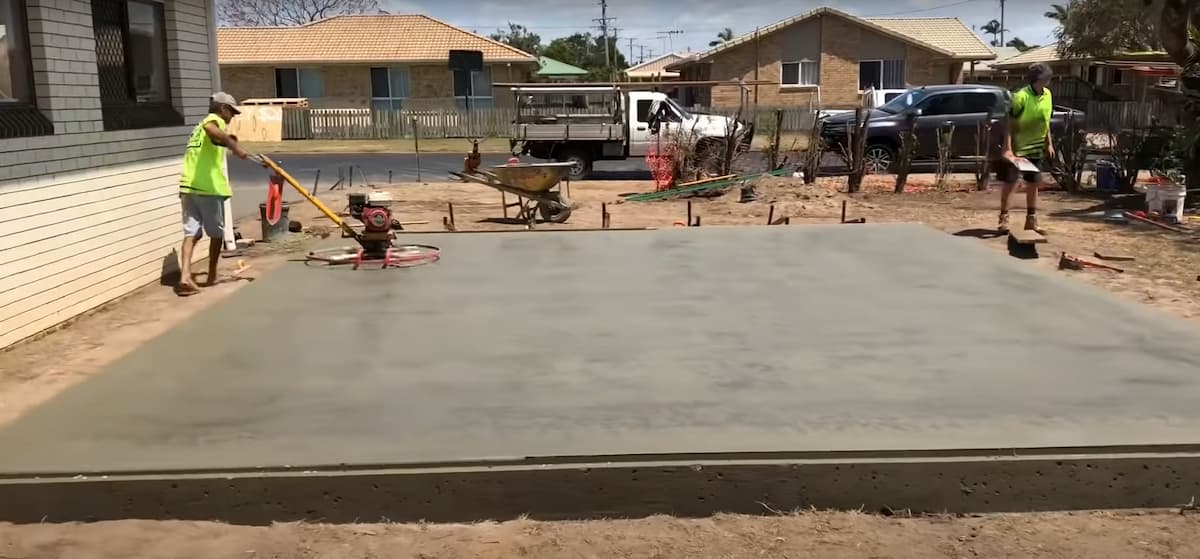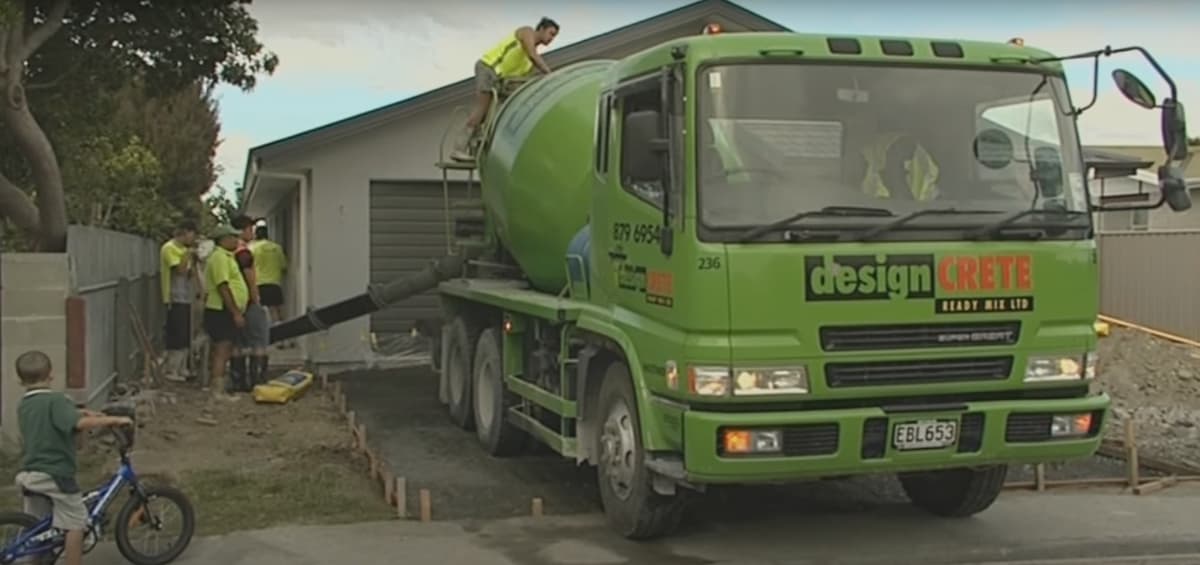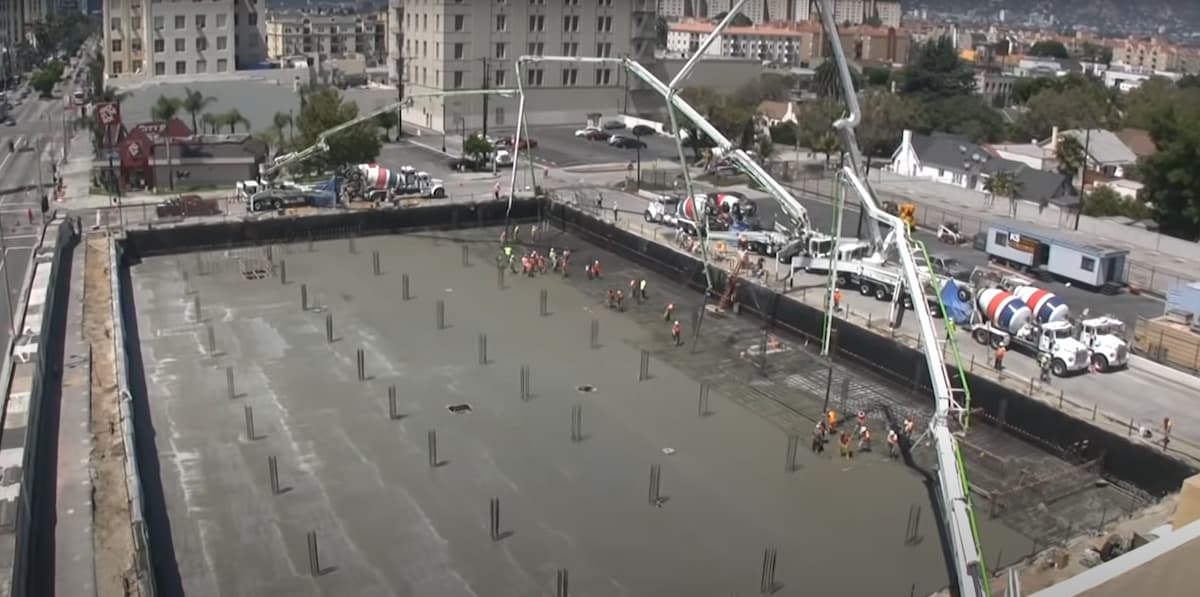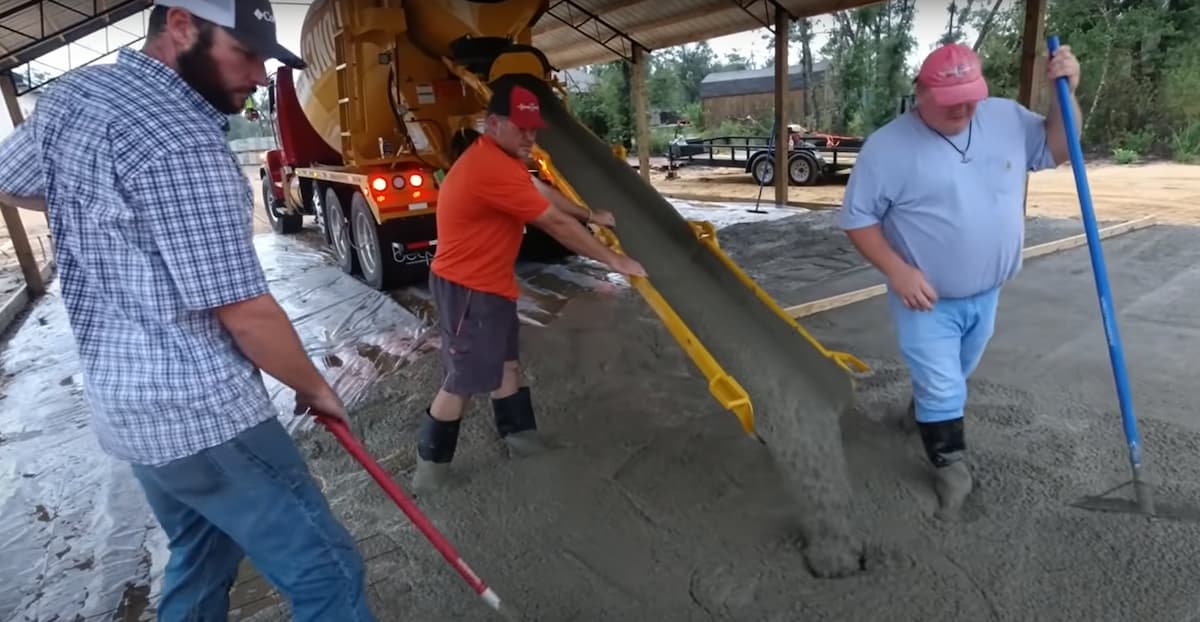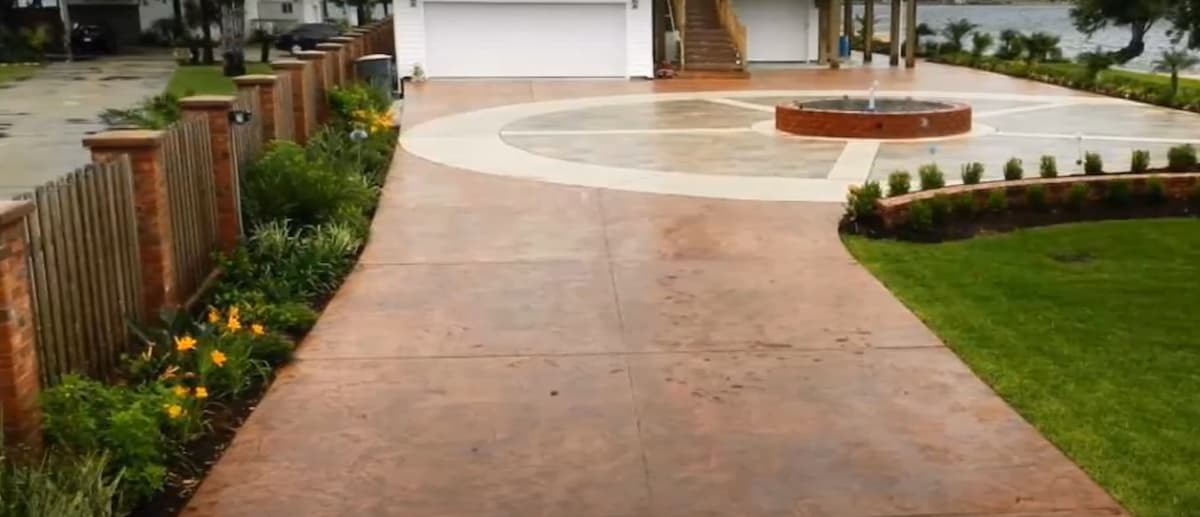
Driveway sealer is a clear or coloured liquid or granules that are spread over the surface of driveways and walkways to protect them against weather damage, UV light, water damage and chemical spills. They can also be used to enhance the appearance of these surfaces by imparting colours other than plain nondescript grey. Sealing the concrete driveway is required to enhance its life and performance.
Concrete sealers can be used on surfaces other than concrete such as brick, limestone, bluestone, pavers etc. A concrete sealer is available in a variety of types and finishes including matte finish, semi-gloss finish and high-gloss finish. Polished stone surfaces are best sealed with a high-gloss sealer to make them look polished. These concrete sealers are available in different durability categories which indicate their life expectancy under various conditions.
How Much does a Concrete Driveway Sealer Cost?
In Australia, driveway sealing prices vary between and reach up to $500. Depending on the type of sealer required, its durability, the condition of the surface and location (urban vs rural). Concrete driveways in country areas are usually sealed with a higher quality product than urban ones since they are exposed to harsher conditions.
Concrete Driveway Sealer Benefits
There are many benefits of using concrete sealers on your concrete driveway:
Improved Appearance and Curb Appeal
An unsealed driveway quickly fades into the background and becomes a nondescript grey slab. Using a concrete sealer enhances its appearance and makes it more inviting to use.
Enhanced Durability
A driveway that is not sealed may deteriorate faster than one that is sealed as the surface may absorb water, freeze and thaw with temperature fluctuations, attract dirt, stains and oil spills, be susceptible to cracks and become more susceptible to winter road salt which can attack the concrete.
Enhanced Performance
Using concrete sealers is essential when using porous pavers on top of your driveway. It fills in the pores and reduces permeability, minimizes water penetration, penetration by motor oil, dirt, sand etc. This results in improved drainage and less staining since water may not soak into the surface as much.
Increased Safety
Unsealed surfaces are extremely slippery especially when wet or icy. They become black ice magnets. Concrete driveways that are sealed retain their texture which makes them less slippery even with rain or snow on them.
Concrete Driveway Paint and Sealer
The concrete driveway paint and sealer is a protective barrier for your cement driveway. This protects your concrete with a waterproof barrier that enhances its life expectancy in various season conditions. Consider using a concrete sealer and paint if you have porous paving on top of mixed surfaces to fill in the gaps, improve drainage and minimizes spillages. These concrete sealer and paint products are available in a variety of colours and use environmentally friendly ingredients.
Concrete Driveway Sealing
When your cement surface starts to appear dull or grey, it is time to reseal it using a quality driveway sealer product. It may protect against stains and major damage and make future maintenance easier. Driveway sealing price depends on the type of driveway sealer required, its durability, your budget and location (urban vs rural).
Your concrete driveway is an investment. Protect it with a good quality concrete sealer product.
Concrete Colour Sealer Price
The form of colour pigments used, the amount of pigment added to the concrete sealers and the age of the surface all affect how long the product may last. Some can last for years while others are guaranteed to fade within a year or two after application. It’s all about the delivery. Most concrete driveway sealers are designed for driveways but some may not give you a great range of results on another type of concrete surface.
When you are looking for a driveway sealer, consider whether it is recommended for your type of surface (eg. cement, pavers etc.) and that it is suitable to the climate where you live. Consider its durability, prices, recommendations by professionals, availability of guarantees and user reviews.
This driveway sealer benefits your driveway by protecting it from weather such as water, UV light etc. Thus it helps to keep your driveway for a long time which saves money to do the same thing over and over again. In Australia, the average price for a bucket of driveway sealant is around $50 but can reach up to $150 and even $200. This sealant is recommended by professionals and is usually used by them.
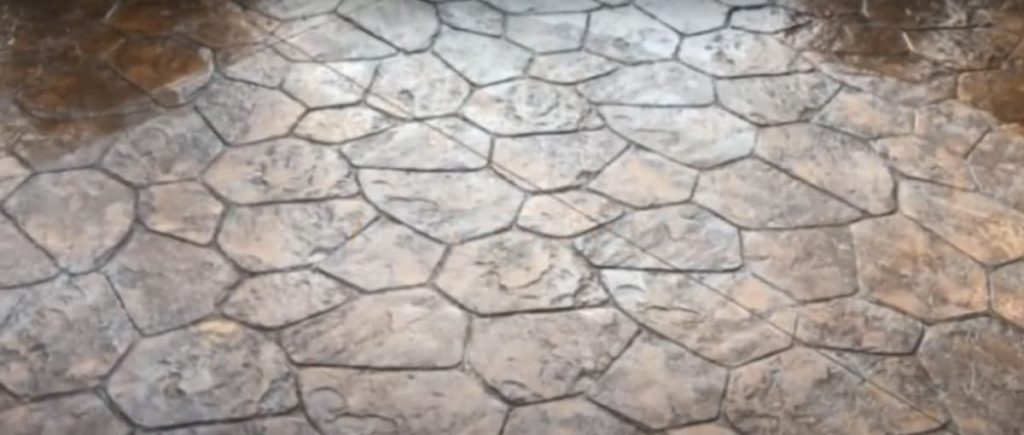
Types of Driveway Sealers
Water-based Sealer
This is a low-cost option with many benefits but it may be applied at least two to three times a year for maximum protection. It does not last as long as other types so prepare to reseal it every year or two.
Acid-based Sealer
This type of driveway sealer is the most popular and provides excellent protection from water, oil, gas and other chemicals. It typically lasts about 5 years but may need frequent reapplication depending on how often you use your driveway.
Wax-based Sealer
This type of sealer is easy to apply and looks fresh for many weeks. It resists the application of oil, gas and water as well as UV degradation.
Polyurethane-based Driveway Sealer
This type is extremely effective with a thick consistency that protects against the elements such as water, oils, gases and chemicals. It is best for high traffic areas and lasts about 5 years.
Solvent-based Acrylic Sealers
These types of sealers have a high resistance to chemicals and water as well as oil. Solvent-based acrylic sealers are easy to apply with a roller or spray, don’t fade in sunlight and last about 5 years. They are suitable for high traffic areas. The solvent-based acrylic sealers also include a wax which adds to its resistance against oils, chemicals and water.
Acrylic Sealers
This type of sealer is easy to apply and provides great results. The acrylic sealers offer excellent protection from water, oil, gas and chemicals as well as fading from sunlight. It also provides good resistance against oils, chemicals and water.
How Often should You Seal a New Driveway?
You don’t need to wait till your newly laid concrete has fully cured before you seal it. In fact, applying a driveway sealer is essential to the overall performance of your new concrete driveway. Grinding away the top layer of your drive also exposes the underlying aggregates which may absorb water if exposed, freeze and thaw with temperature fluctuations, attract dirt, stains and oil spills, be susceptible to cracks and become more susceptible to winter road salt which can attack the aggregate.
How do I Choose the Right Concrete Driveway Sealer?
Before choosing a driveway sealer or sealers for your concrete driveway, it may be beneficial if you know what are the most common types of materials used for paving surfaces in driveways, their benefits and disadvantages. This may help you make an informed choice when buying sealers with a better understanding of product performance under given conditions. There are basically four categories of surface materials that are commonly used for paving driveways.
Concrete
Concrete is one of the most popular materials for paving a driveway with its low installation costs and durability. It is a mixture of cement, aggregate and water. Concrete can be coloured by adding either chemical pigments or natural materials such as crushed stone.
Flagstone
Flagstone is usually set with sand joints in order to reduce permeability, enhance the appearance and provide structural strength with ease of movement due to inherent expansive properties. This type of driveway requires good maintenance as sand may wear off over time which leaves it susceptible to dirt accumulation. If the sand is replenished frequently this problem can be avoided however not all people are prepared to do this on their own so it’s important to bear this in mind when buying sealers for flagstone driveways.
Pavers
Pavers have become more popular recently because they are less expensive than concrete, require less maintenance compared to flagstone, can be used almost anywhere (including places with extreme inclines or low-lying areas) and come in a wide range of shapes and sizes to suit every taste. Pavers are typically installed over compacted stone dust which is porous, absorbs water, freezes and thaws with temperature fluctuations, dirt accumulates quickly, may wear off with vehicular traffic and winter road salt can attack the aggregate. As you can see, sealed pavers are practically essential if you want them to perform well under given conditions for longer periods of time.
Natural Stones
Natural stones such as slate, limestone or bluestone have become extremely popular due to their appearance, durability and available colours. They are sought after by DIY enthusiasts and professional projects alike and the most common type of driveway sealer for natural stone is penetrating sealers.
Types of Driveway Sealers: Penetrating and Topical Driveway Sealers
Penetrating sealers penetrate into the surface and react with the cement in the concrete by forming a new layer that protects it from UV degradation, water penetration and chemical spills. This type is usually less expensive than other types but offers good performance for relatively short periods of time only (a few years). It is an excellent choice if you plan to reseal your concrete or pavers every year.
Topical driveway sealer creates a film over the surface which protects against UV rays, prevents dirt accumulation, resists stains caused by oil spills etc. A poor choice if you want protection against chemicals because they may eventually evaporate through the pores of your driveway’s surface.
There are plenty of reputable manufacturers who offer high-quality sealers for different kinds of materials used in driveway paving. Make sure you choose the right type of sealer for your needs and also remember that products are available in many colours to suit any design preference or match existing surface finishes.


